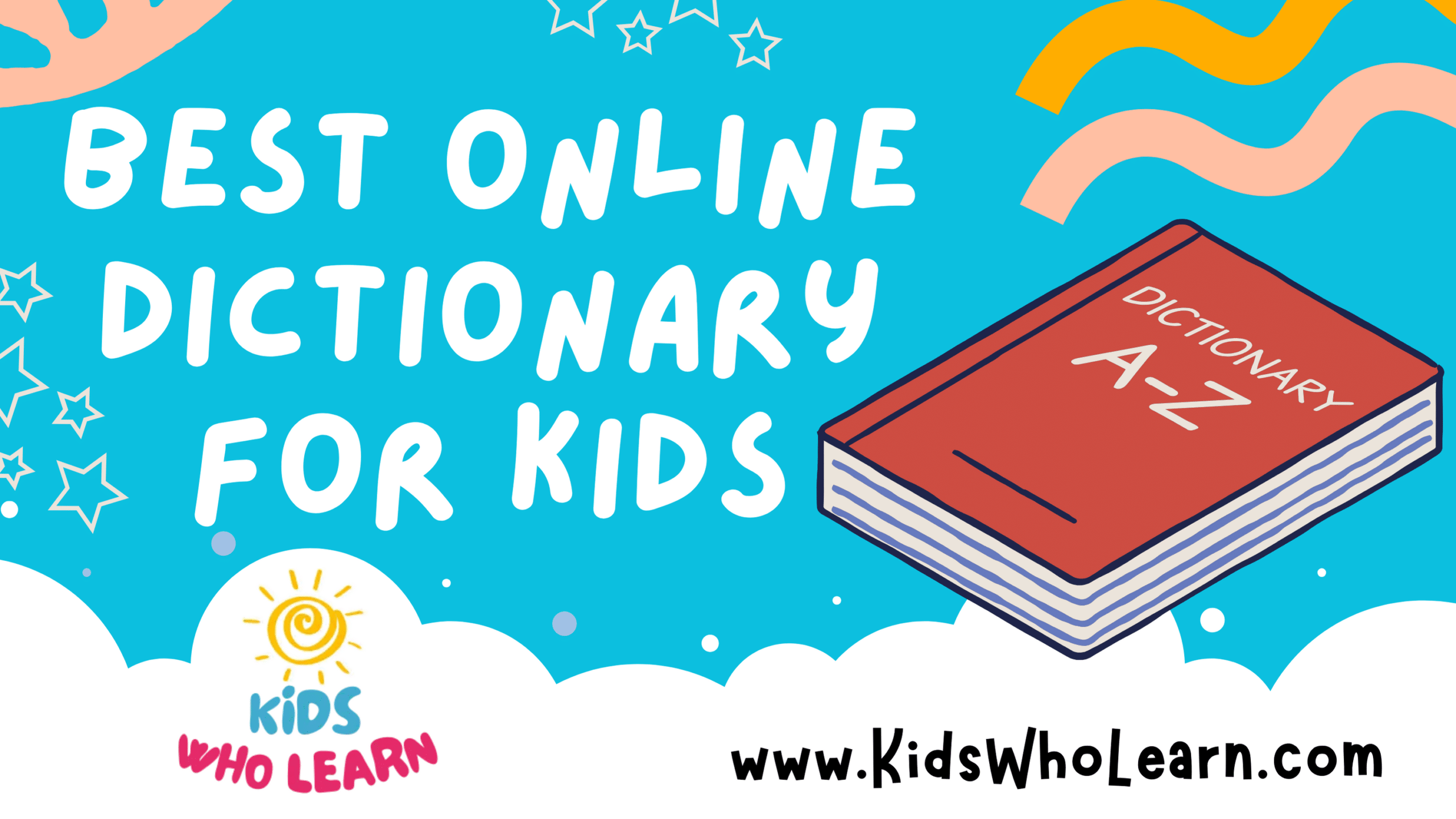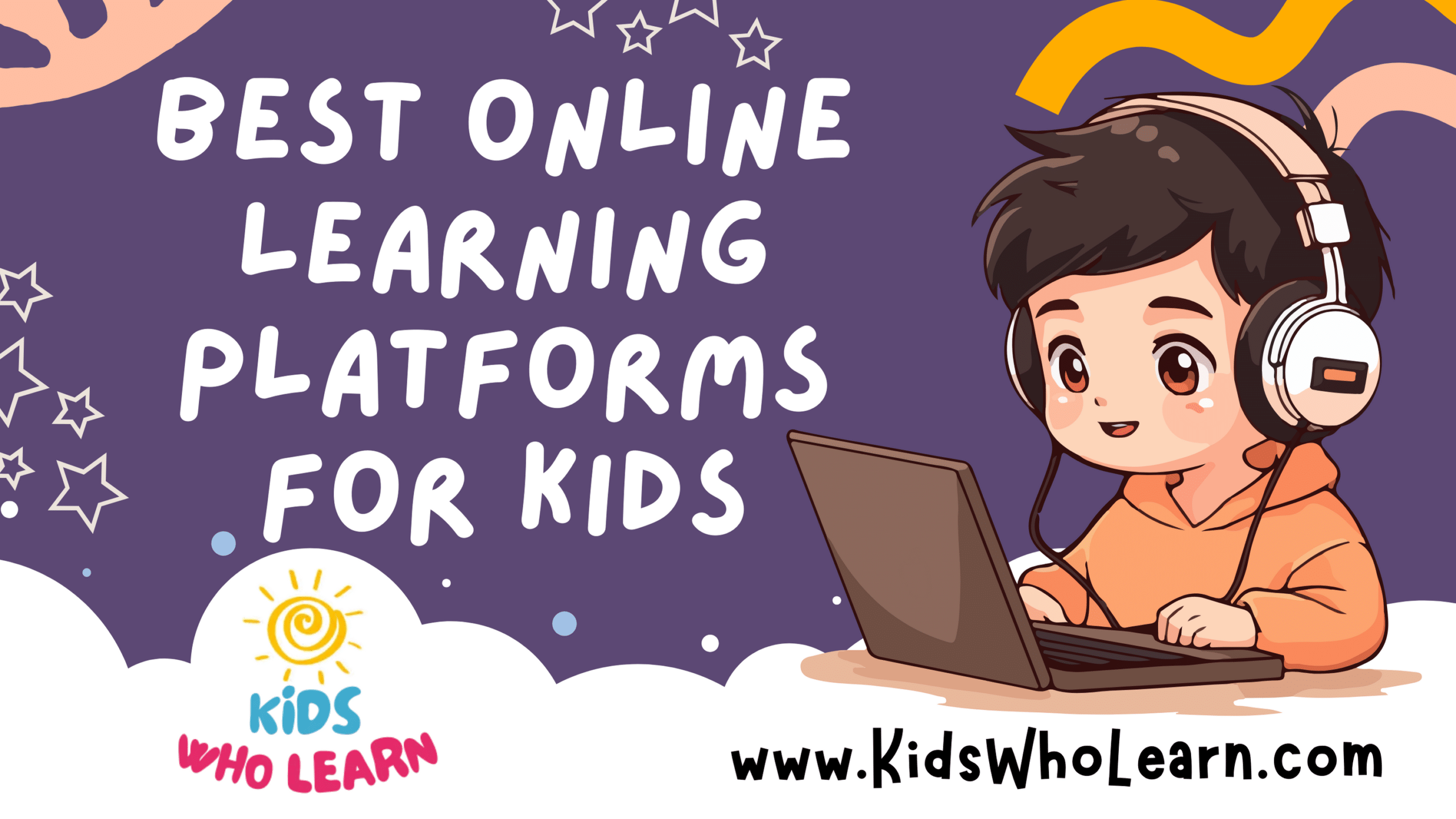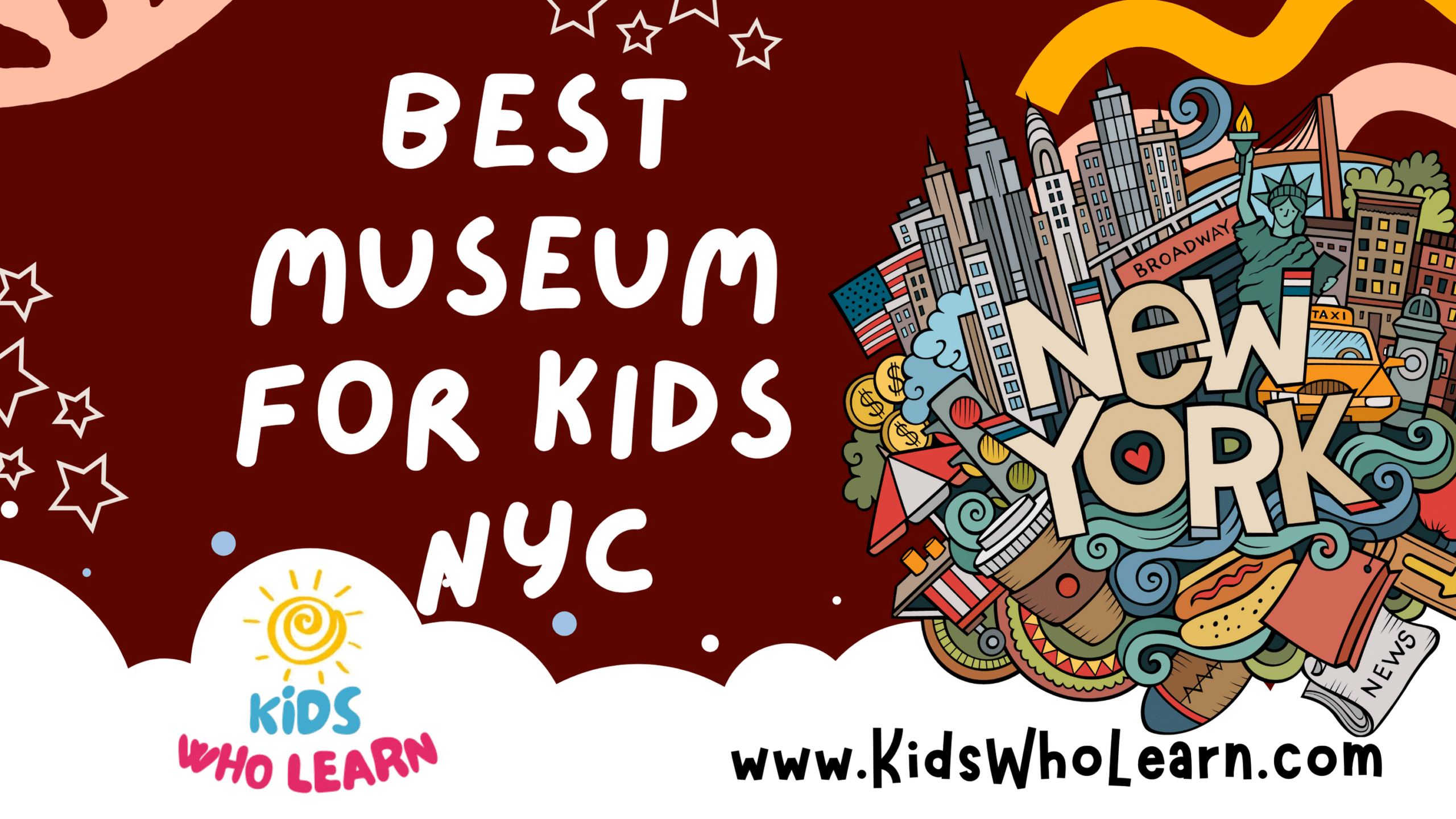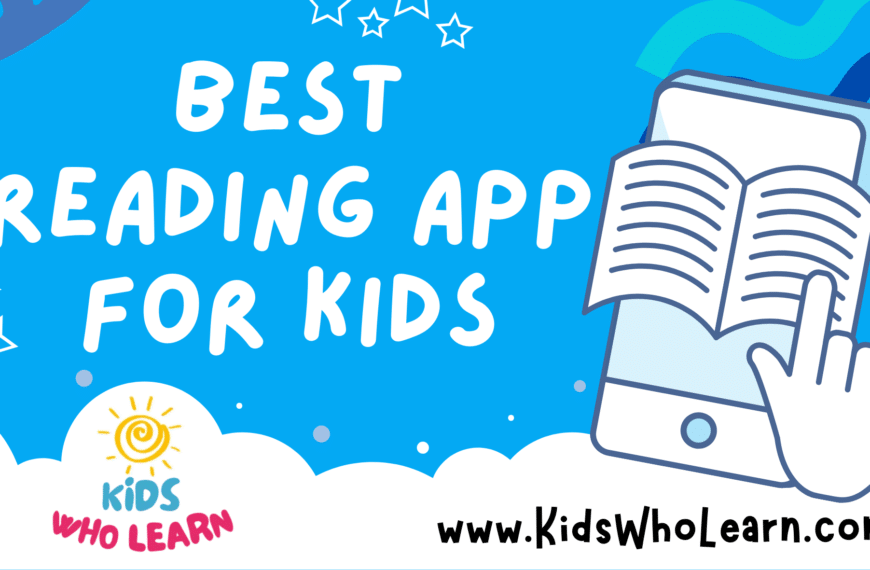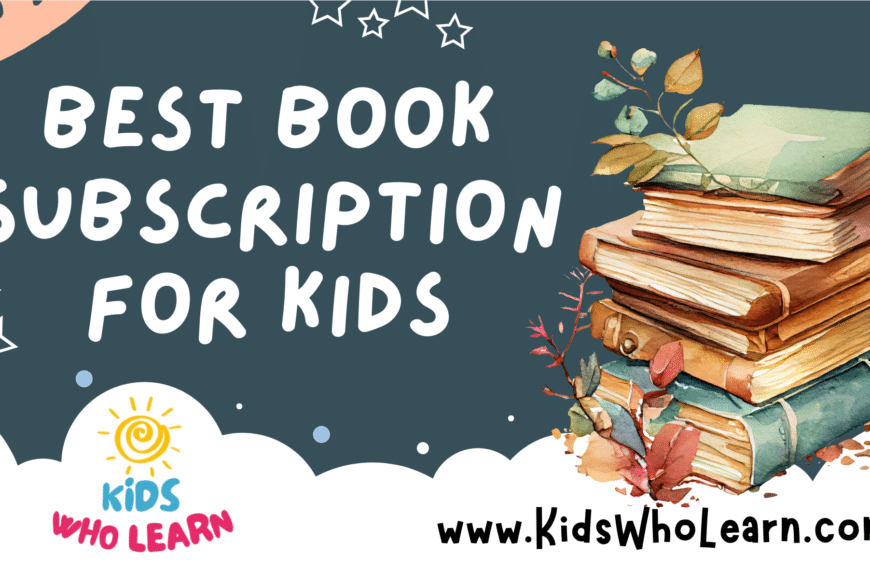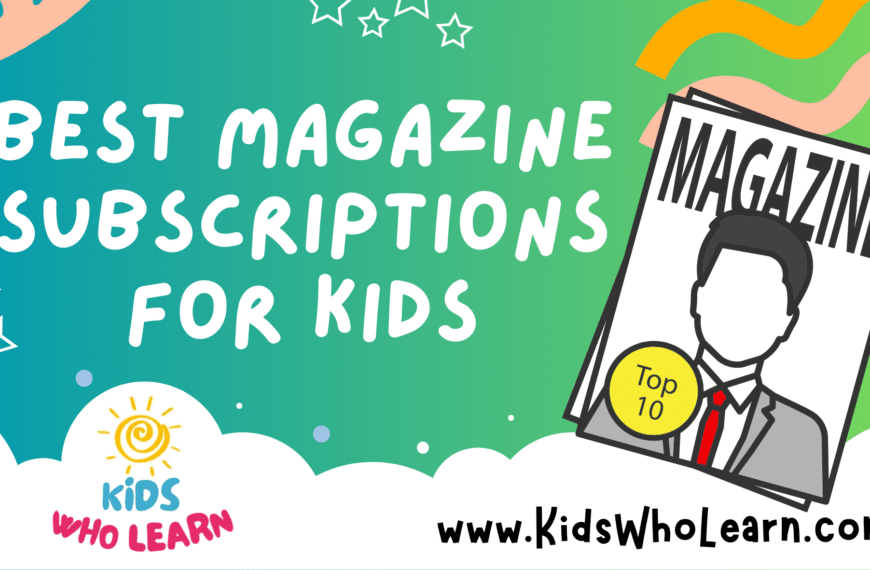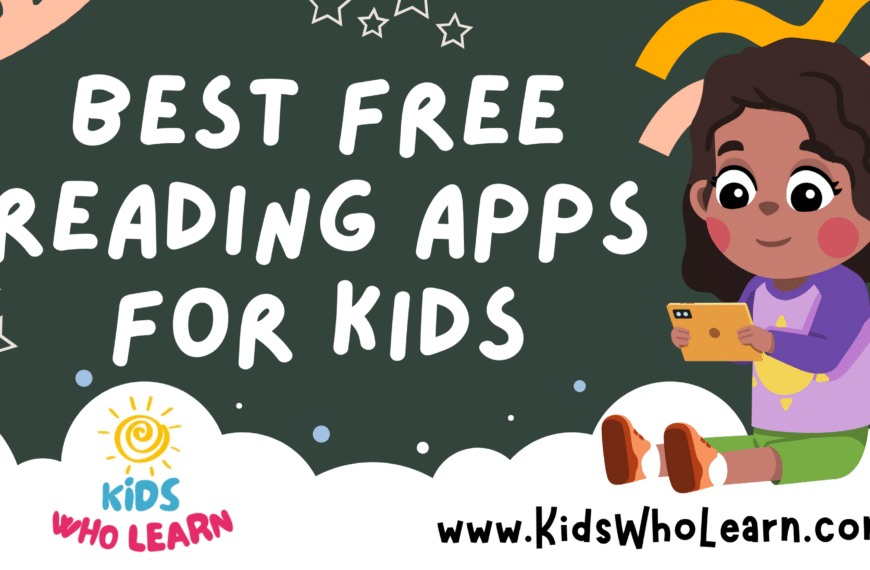In the digital age, access to information has become more critical than ever, especially for the younger generation. When it comes to literacy and vocabulary development, an online dictionary for kids can be an invaluable tool. The best online dictionaries for children not only provide definitions but do so in a way that is accessible, engaging, and tailored to a young audience. These specialized resources offer a range of features that cater to the unique needs of students, making the mastery of language both an educational success and an enjoyable experience.
Choosing the right online dictionary for a child involves more than just picking the first option that appears in a search engine. It requires consideration of the content’s appropriateness, the ease of use, and the resource’s ability to hold a child’s attention. The ideal dictionary incorporates interactive elements that turn learning into a game, as well as supportive resources for teachers and parents to help guide young learners. Additionally, an online dictionary that keeps updating with new words and community features can grow with the student, providing a lasting educational companion.
Key Takeaways
- Online dictionaries for kids offer definitions in an accessible and engaging format.
- The right online dictionary should include interactive learning tools and be easy for children to use.
- Regular updates and additional resources support ongoing educational development and engagement.
Choosing the Right Online Dictionary for Kids
Selecting an online dictionary for kids requires attention to detail to ensure it’s age-appropriate and enriching. It should enhance their vocabulary in a clear, interactive, and engaging manner.
Key Features to Consider
When considering an online dictionary, look for age-appropriate definitions, clear pronunciation guides, and engaging illustrations that aid understanding. An ideal dictionary should offer:
- Age-appropriate definitions with clear examples.
- Illustrations that help reinforce word meanings.
- Pronunciation audio clips to aid in word recognition.
- Interactive features that engage and stimulate learning.
Benefits of Wordsmyth and Word Explorer
Wordsmyth and Word Explorer offer distinct advantages as online dictionaries for kids:
- Wordsmyth Illustrated Learner’s Dictionary:
- Interactive dictionary with easy-to-understand definitions.
- Rich illustrations that help visual learners.
- Word Explorer Children’s Dictionary:
- Comprehensive search tools for exploring words.
- Picture dictionary format to bolster word association.
Considering Language Support
In our globalized world, language support is a key consideration. The best online dictionaries provide:
- Chinese support: Essential for Chinese speakers or learners.
- Spanish support: Benefits kids fluent in or learning Spanish.
This multi-language support bolsters linguistic development and can be an invaluable source of information.
Assessing Accessibility and Compatibility
Last but not least, assess if the online dictionary is accessible across various platforms and compatible with:
- Computers.
- iOS and Android mobile devices for on-the-go learning.
- Ensure seamless accessibility over the internet, regardless of device type.
Ease of use and broad compatibility encourage consistent usage and learning.
Engaging Resources and Tools
Selecting the right children’s dictionary equips you with a variety of engaging resources and tools that enhance the learning experience. These online platforms are designed with the key objective of making the process of acquiring knowledge both effective and enjoyable.
Interactive Elements and Games
Online student dictionaries often integrate interactive elements and games to captivate your attention and foster enjoyable learning. You’ll encounter activities such as word matching, spelling bees, and vocabulary challenges that cater to different age levels and competencies. These elements not only make learning fun but also reinforce language skills by promoting repetitive practice in an engaging way.
- Key Features:
- Word Matching Games
- Spelling Quizzes
- Vocabulary Challenges
Thesaurus and Example Sentences
Utilizing a thesaurus can vastly improve your vocabulary. These tools provide synonyms and antonyms, helping you understand the breadth of language. Additionally, quality student dictionaries offer example sentences, which illustrate word usage in context. This clarifies any ambiguity you might have about a word’s meaning and shows you how to use it effectively in your own speech and writing.
- Key Benefits:
- Enhances vocabulary with synonyms and antonyms
- Provides clear word usage through examples
Visual Learning with Images and Maps
Visual learning aids comprehension, especially for complex subjects like the human body, the physical world, government, and law. A comprehensive interactive dictionary will include images, maps, and illustrations, allowing you to visualize terms and concepts. This is particularly beneficial for visual learners who grasp information more effectively through imagery than through text alone.
- Visual Aids Include:
- Detailed illustrations of the human body
- Maps highlighting geographical and political information
- Images that support the understanding of complex concepts
Educational Advantages for Students
Online dictionaries tailored for kids can transform the way you learn and assimilate language skills. They offer interactive and engaging avenues to expand your vocabulary and enhance language proficiency.
Vocabulary Building and Word Usage
Building a robust vocabulary is essential in your educational journey. Online dictionaries for kids often feature a Word of the Day to introduce you to new terms regularly. These platforms provide clear and concise definitions, along with examples of word usage in context, making it easier for you to understand and remember new words. For you as a student, encountering a variety of words in different contexts also improves your reading and writing skills.
- Word of the Day: Introduces new vocabulary each day to steadily increase your language bank.
- Word Usage Examples: Shows how words function in sentences, aiding comprehension.
Language Learning for English Language Learners
If you’re an English Language Learner (ELL), an online dictionary is a vital tool in grasping the nuances of the language. These dictionaries usually offer pronunciation guides, helping you speak English correctly and confidently. They cater to the dynamics of the modern classroom, enabling both students and teachers to access language resources that support diverse learning needs.
- Pronunciation Aid: Hear the correct pronunciation to ensure proper articulation.
- Language Support: Find translations that help bridge gaps for those new to English.
Interactive features such as games, quizzes, and pictorial representations can help reinforce learning, making these dictionaries not just informative but also a fun part of your education.
Convenience Features for Users
Online dictionaries designed for kids prioritize features that enhance your ease of use and provide a seamless experience. You’ll find that navigation is straightforward and subscriptions offer an ad-free environment conducive to learning.
Ease of Navigation and User-Friendly Interface
User-Friendly Design: You can expect a clean, minimalistic interface that guides your child directly to the search function upon arrival.
Search Functionality: Quick and accurate search results boost the confidence of young users as they find definitions and usage examples effortlessly.
Subscription Services and Ad-Free Experience
Ad-Free Options: Opting for a subscription service often removes distracting advertisements, creating a more focused learning environment at home.
Subscription Benefits: With a subscription, you typically gain access to additional resources and features, like interactive games or custom word lists, which enrich the educational experience.
Resources for Teachers and Parents
Online dictionaries for kids do not just serve as reference tools; they are essential components for educational development. With features designed for classroom use and home learning, they help build children’s language and spelling skills.
Classroom Integration and Teaching Tools
Incorporating an online dictionary like Wordsmyth into your classroom can be transformative. It provides a platform for direct vocabulary instruction and spelling practice. You can create custom word lists tailored to your lesson plans, and use interactive games that reinforce word meanings and usage, fostering students’ confidence in language.
- Education Features:
- Word Lists: Construct and share specific word lists aligned with your curriculum.
- Quizzes: Generate quizzes for spelling and vocabulary.
Interactive tools also help kids grasp concepts in math, with definitions that are age-appropriate and easy to understand, supporting your education goals.
Guides for Parents to Help Children Learn
At home, you can extend the learning environment by guiding your children through educational resources. Parents play a critical role in encouraging children to explore information and learn more on their own.
- Home Learning Techniques:
- Daily Words: Introduce a new word daily to build your child’s vocabulary.
- Reading Together: Use the dictionary to look up new words encountered during reading sessions.
This consistent practice not only improves children’s spelling but also builds their confidence to use new words appropriately.
Updates and Community Features
Online dictionaries for kids are consistently improving, providing engaging resources to foster learning. With dynamic updates and interactive community elements, your child’s word exploration can be both current and collaborative.
Word of the Day
Every day, a new Word of the Day is featured, introducing your youngster to a diverse vocabulary. This not only widens their lexicon but also includes:
- Pronunciation guides to ensure correct speech.
- Example sentences to understand the context of use.
- Illustrations that add a visual dimension to learning.
Through user-friendly platforms, these words often incorporate wild or unusual terms, steering children towards being wild word learners.
Recent Updates
Staying up-to-date with the latest news in the language world is essential, and high-quality online dictionaries for kids deliver regular updates which:
- Enhance the user experience with improved interfaces.
- Introduce novel features for better engagement.
- Address previous challenges with innovative solutions.
A commitment to frequent updates ensures that the dictionary remains a reliable source for contemporary language learning.
Technical Aspects and Support
When selecting the best online dictionary for kids, it’s crucial to consider how it functions across different platforms and what kind of support network is available should you need assistance.
Platform Availability: Computer and Mobile Devices
Online dictionaries should be accessible on a variety of devices. You’ll often find that reputable dictionaries offer:
- Computer: A robust website that you can access from any web browser.
- Android: A dedicated app available in the Google Play Store.
- iOS: An app you can download from the App Store for iPhone and iPad.
These platforms typically support a simple search function which makes finding definitions easier for children.
Support and Help Resources
When you need help, good online dictionaries should have resources to learn more about how to use their tools at home or in the classroom. Support often includes:
- FAQs: A list of frequently asked questions to help resolve common issues.
- Contact Information: Email and phone support for more complex problems.
Clear, organized help sections ensure that both you and your child can make the most out of the learning experience.
Dictionary Evolution and History
Dictionaries have transitioned from being tangible books to accessible online resources, with particular advancements in catering to the educational needs of children.
From Traditional to Online Dictionaries
You might be familiar with the sight of thick, bound volumes of dictionaries, which have been a mainstay in homes and libraries. These books served as the primary source of information regarding word definitions and language usage for centuries. The evolution of dictionaries has mirrored technological advancements, leading to the birth of online dictionaries. These digital repositories are more than static texts; they are dynamic, often interactive platforms that can be updated in real-time. Online dictionaries have significantly broadened access to language resources, facilitating instant retrieval of information with features like audio pronunciations and word games to enhance your learning experience.
The Development of Children’s Dictionaries
Children’s dictionaries are tailored specifically to your child’s understanding and level of language development. Compared to standard dictionaries, children’s dictionaries provide simpler, age-appropriate definitions and illustrations, making them effective educational tools. The history of children’s dictionaries can be traced back to the 18th century, but their online counterparts are a more recent innovation. As books, they selectively included vocabulary relevant to young readers. Now, as online platforms, they integrate elements like animation and interactive quizzes to encourage exploration and learning. Over time, children’s dictionaries have become an invaluable source for language learning, continuously adapting to meet the pedagogical needs of younger users.
By leveraging the capabilities of online platforms, dictionaries for children not only facilitate language acquisition but also engage their users in a more interactive and enjoyable way.
Conclusion
When selecting an online dictionary for kids, your focus should naturally be on the resource that provides clear and age-appropriate meanings. A good online dictionary empowers students, enhancing their comprehension and building their confidence in language use.
- User-Friendly: Look for interfaces that are easy to navigate.
- Age-Appropriate Content: Ensure the dictionary is suitable for the specific age group.
- Features: Prefer dictionaries with pronunciation guides, images, and example sentences.
- Reputation: Opt for dictionaries from established educational sources.
By prioritizing these aspects, you can make an informed decision about the best online dictionary for your students or children. Remember, the right choice fosters a more enriching learning environment and encourages students to explore language with curiosity and assurance.
Frequently Asked Questions
Selecting the right online dictionary for your child can enhance their understanding of language and support their educational journey. The following FAQs address common concerns related to online dictionaries for young learners.
What are some reliable online dictionaries for children?
You can trust websites like Wordsmyth and Merriam-Webster’s Word Central which are specifically designed for children, offering simple definitions and an engaging learning experience.
Which online dictionary is most suitable for middle school students?
Middle school students often find Kidzsearch Dictionary useful as it balances age-appropriate content with a layout that supports their developing research skills.
What is a trusted and ad-free dictionary resource for kids?
For a safe, distraction-free environment, you might opt for Little Explorers, a pictorial dictionary from Enchanted Learning that is free of ads and tailored for children’s use.
Can you recommend a comprehensive thesaurus designed for children?
The Wordsmyth Children’s Dictionary-Thesaurus stands out as a detailed resource that helps children find synonyms and antonyms suitable for their age group and comprehension levels.
Where can I find a user-friendly online dictionary for young learners?
ABCmouse’s online dictionary is noted for its user-friendly interface that encourages young learners to easily navigate and comprehend word meanings.
How do educational platforms like Britannica tailor their dictionaries for children?
Educational platforms like Britannica for Kids offer specialized dictionaries that simplify complex terms and provide contextual knowledge to support children’s learning and curiosity.

